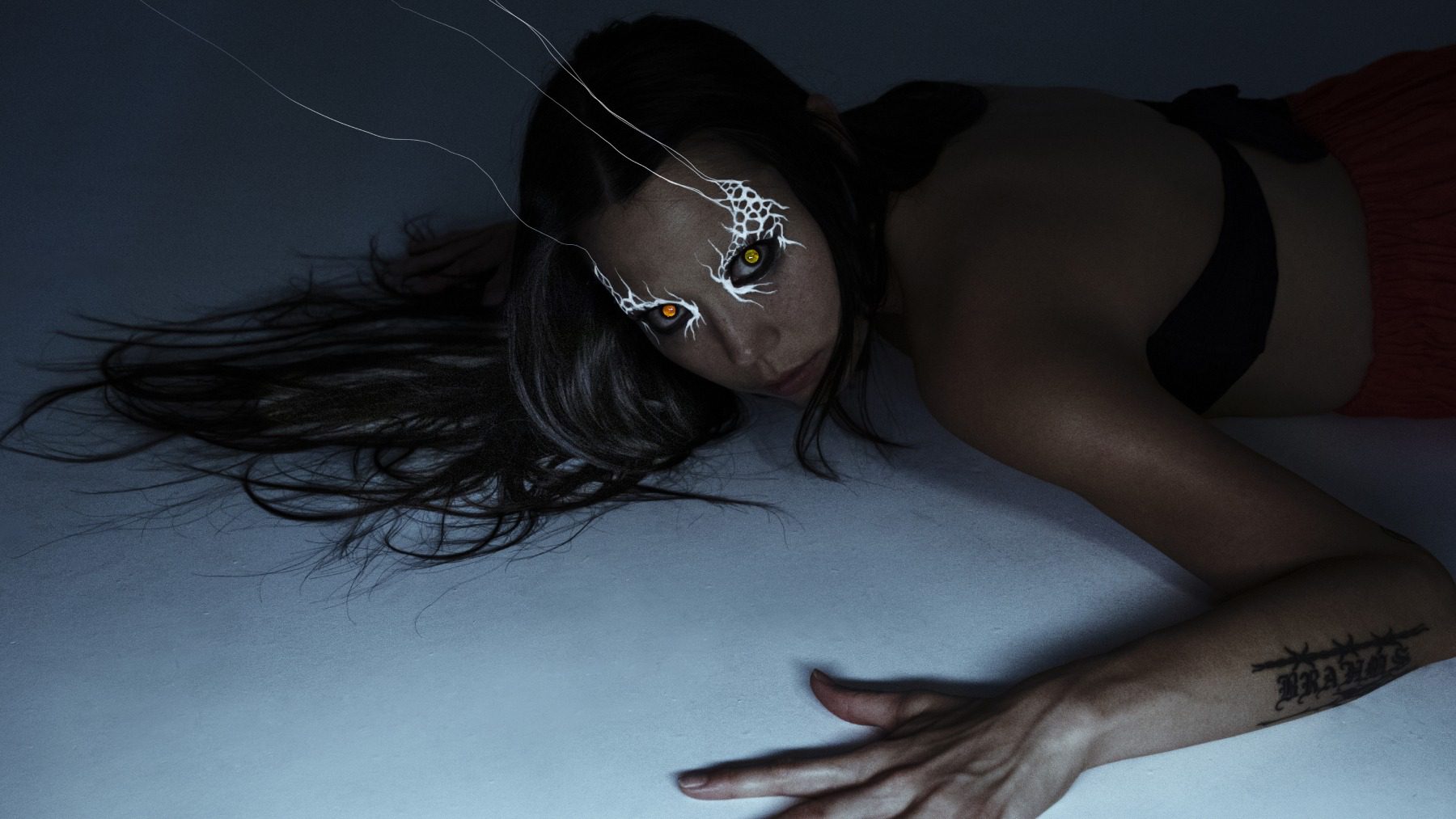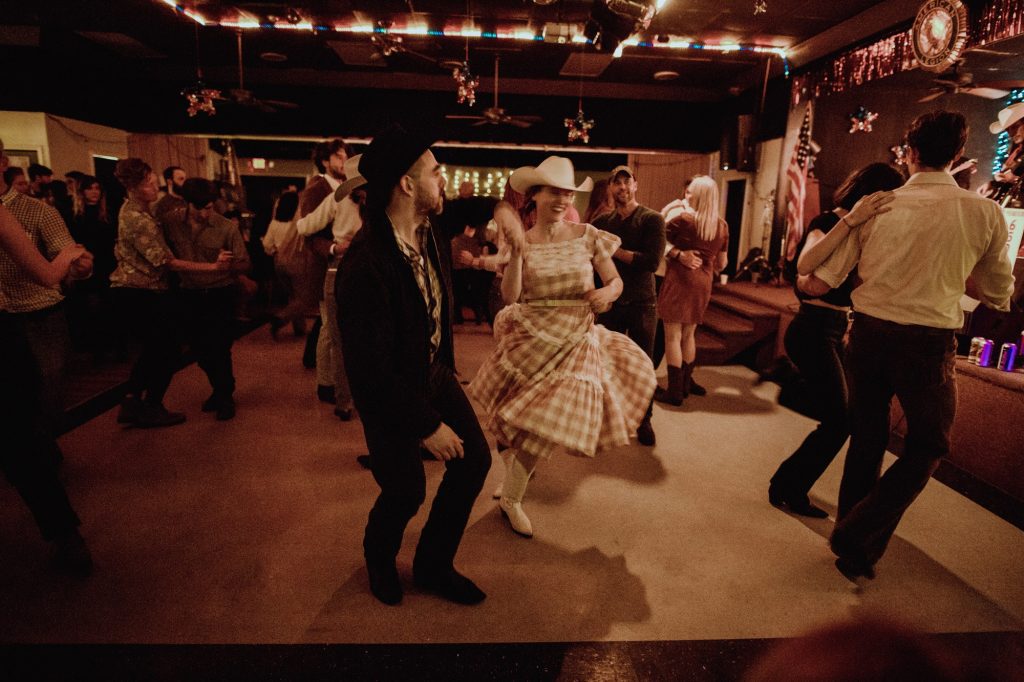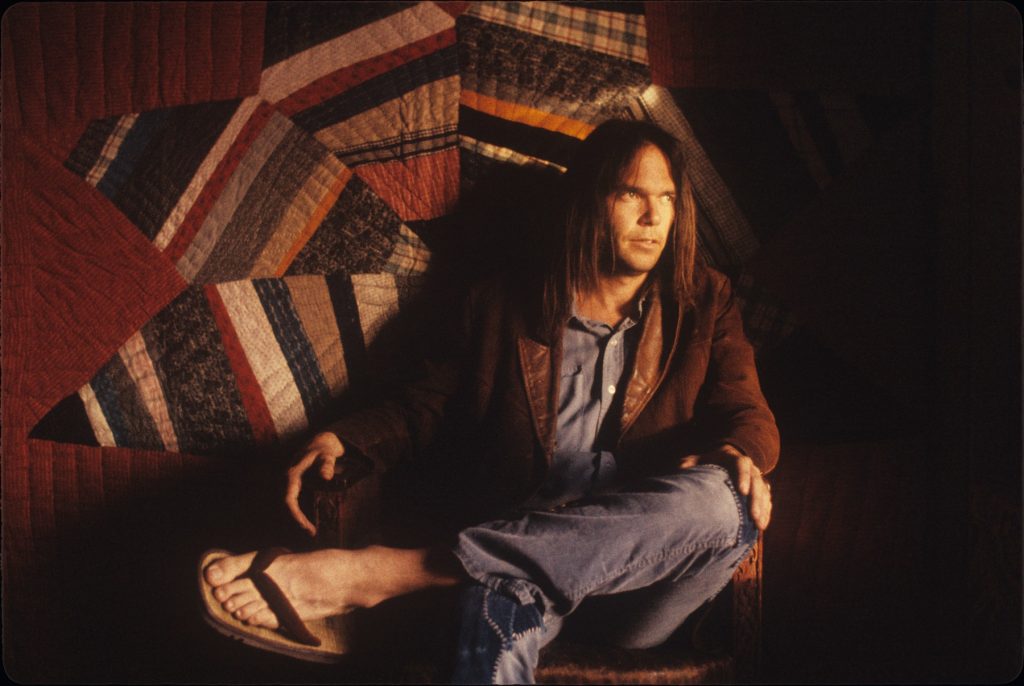
How Mon Laferte Unlocked a New Honesty in Her Songwriting
One day, while living in Los Angeles earlier this year, Mon Laferte jumped in her car, rolled down the windows, and began to drive through Malibu. She had the music turned all the way up and she felt, for the first time in a long time, brave and completely free. She’d let go of a lot of baggage in her personal life and she’d started going through fertility treatment to conceive her first child. She knew she was on the verge of something new — something better.
That drive inspired “Algo Es Mejor,” an air-light track that embodies the spirit of her intimate new album, 1940 Carmen. The album overflows with bright, acoustic sounds, inspired by delicate folk songs and sun-lit days in L.A. But the themes on the LP, which is named after the Airbnb that Mon stayed in while she was in California, are achingly personal, reflecting a period in her life that was pivotal, intense, and filled with emotion. “I wasn’t planning to make an album,” she says in Spanish on a recent Zoom call. “I went to L.A. for personal reasons, but when I got there, all these situations I was going through mounted on top of each other. Music has always been an escape for me, and I just needed to get everything out.”
blogherads.adq.push(function () {
blogherads
.defineSlot( ‘medrec’, ‘gpt-mob-latin-article-inbody1-uid0’ )
.setTargeting( ‘pos’, [“mid”,”mid-article”,”btf”,”in-article1″] )
.setSubAdUnitPath(“music//latin//article//inbody1”)
.addSize([[300,250],[2,2],[3,3],[2,4],[4,2]])
;
});
The Chilean artist has always been deeply influenced by her surroundings. Her last album, Seis, was rooted in the traditions of Mexico, where she’s spent 14 years — including much of the pandemic. Released this past spring, that album was bursting with layered arrangements; Mon drew from mariachi and banda from Oaxaca and Sinaloa. “We recorded a ton of instruments, and because it was during the pandemic, it was like we had all the time in the world,” she says.
She wanted a completely different approach for 1940 Carmen. She got reacquainted with the acoustic guitar and opted against going to a big studio to record. Instead, she wrote in her pajamas in the mornings and got reacquainted with her acoustic guitar. Even when she began adding flourishes to the production, she kept everything fairly stripped-back.
That simplicity underscores the weight of the lyrical content. Mon had been trying to get pregnant for a year and found out that when she’d undergone radiation for thyroid cancer in 2009, her ovaries had been affected. She was taking hormones as part of her fertility treatment, and found herself writing about things she hadn’t talked about before. “Hormones are brutal — they’re insane,” she says. “Writing in that state [resulted] in some songs that are from a really honest place.”
One of those songs is “A Crying Diamond,” a track that’s so raw, Mon doesn’t talk about it in conversation, saying only that it’s about an experience that’s painted explicitly in the lyrics. It also happens to be in English, a language Mon doesn’t speak but wanted to write in on this album. “A Crying Diamond” is a baroque guitar ballad that describes a 40-year-old man taking advantage of a 13-year-old girl: “He knows that God understands him, because God is also a man,” she sings, her voice haunting.
blogherads.adq.push(function () {
blogherads
.defineSlot( ‘medrec’, ‘gpt-mob-latin-article-inbody2-uid1’ )
.setTargeting( ‘pos’, [“mid”,”mid-article2″,”btf”,”in-article2″,”mid-article”] )
.setSubAdUnitPath(“music//latin//article//inbody2”)
.addSize([[300,250],[300,251],[2,4],[4,2]])
.setLazyLoadMultiplier(2)
;
});
Mon says she used Google Translate for the tracks where she sings in English, which also include “Good Boy” and “Beautiful Sadness.” “I wanted to say all these things, and I feel like by writing them in English, I’m not actually saying them, if that makes sense,” she says. “It was almost like the language I can never get around to understanding somehow granted me permission to share these things.”
The album also captures the profound joy that Mon feels about motherhood. She’s currently five months pregnant and dedicates songs like “Niña” to her unborn child. “My albums are always like a diary of my life, but this one is from a really special moment,” she says. “It’s like a musical photograph of such an important time — not just because of motherhood, but because of so many things.”
Even though the album wasn’t in her plans, she says it means a lot to her: “I came to Los Angeles hoping to get pregnant, and I left with a baby and an album.”




